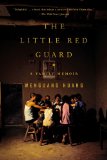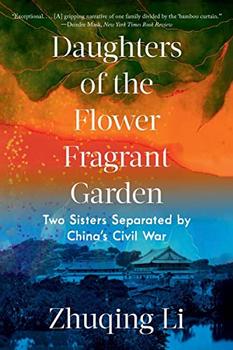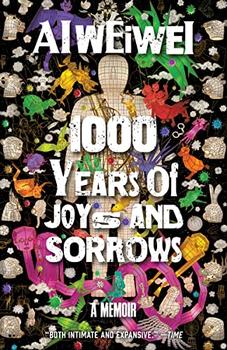Summary | Excerpt | Reviews | Beyond the book | Read-Alikes | Genres & Themes | Author Bio

A Family Memoir
by Wenguang HuangChina's Cultural Revolution was initiated in 1966 by Chairman Mao Zedong who, in an attempt to return his people to the socialist fervor of the People's Republic of China in 1949, instituted an ideological purge that sought to remove not only capitalist elements but any evidence of traditional or cultural beliefs from Chinese society. The Revolution lasted until Mao's death in 1976, with most of the reforms he instituted being abandoned by 1978. Wenguang Huang, born in 1964, grew up during this turbulent period in China's history.
Huang's memoir, The Little Red Guard, describes the Communist Party's influence on his life and the lives of his family members. His father Huang Zhiyou was a Party member - a privilege not easily obtained - and Huang himself was a stand-out student and member of the Little Red Guards, the communist youth organization. By all outward appearances, the family was a model for strict adherence to Communist Party ideals. But they had a secret: they were planning a funeral and burial, both of which were outlawed at the time.
From a Western standpoint, it may be hard to fully understand both the cultural importance of Chinese funeral rites and how difficult and expensive it was to try to thwart the government mandate on cremation. Huang does an excellent job of helping his audience appreciate the traditions and superstitions that made his grandmother insist on burial; we come to understand why it was so important to her. The author also paints a vivid picture of the challenges involved in preparing for the event: the delicate balance the family attempts to achieve between filial duty and adherence to the law, and the consequences of disobedience to either grandmother or government. The constant tension caused by the need for secrecy, as well as Zhiyou's determination to save every yuan he can to pay for his mother's funeral, permeate Huang's account. The coffin - the physical manifestation of this tension - becomes an ever-present force in his life.
Although the burial planning is an ongoing theme throughout the book, the author skillfully weaves in his family's history as well as vivid descriptions of what it was like to be a child during the Cultural Revolution. Juxtaposed, the three generations richly illustrate the change China was undergoing, with Huang's grandmother typifying the elderly, traditional generation; the author himself exemplifying the country's youth who were completely indoctrinated in communist ideals; and his father, stuck in the middle, straddling both the old and the new, simply trying to survive.
The author also explores more universal themes, particularly the father-son relationship that seems to be consistent throughout most cultures. Age provides perspective, and Huang provides an unflinchingly honest portrayal of himself as a young man, disdainfully defying his father and condemning his father's views as wrong and old-fashioned. Much of the book, in fact, seems to be the author's attempt to come to terms with his youthful arrogance and anger; it could certainly be read as a belated apology to his parents and siblings. There are few who will fail to recognize themselves (or their teenagers) in the rebellious, know-it-all young man Huang regretfully claims to have been.
My one criticism of the memoir is that it lacks context, and consequently, readers who are unfamiliar with Chinese culture and 20th century history may find themselves a bit adrift. The author does little to paint a detailed overall picture of the era, instead focusing his efforts on portraying his life and his surroundings, which may or may not have been typical for the average Chinese citizen at the time.
Nevertheless, The Little Red Guard is fast-paced and engaging and will appeal to fiction and non-fiction readers alike. The book provides ample themes for discussion and is an excellent choice as a book group selection.
![]() This review was originally published in The BookBrowse Review in May 2012, and has been updated for the
April 2013 edition.
Click here to go to this issue.
This review was originally published in The BookBrowse Review in May 2012, and has been updated for the
April 2013 edition.
Click here to go to this issue.

If you liked The Little Red Guard, try these:

Daughters of the Flower Fragrant Garden
by Zhuqing Li
Published 2023
Sisters separated by war forge new identities as they are forced to choose between family, nation, and their own independence.

1000 Years of Joys and Sorrows
by Ai Weiwei
Published 2022
In his widely anticipated memoir, "one of the most important artists working in the world today" (Financial Times) tells a century-long epic tale of China through the story of his own extraordinary life and the legacy of his father, the nation's most celebrated poet.
Your guide toexceptional books
BookBrowse seeks out and recommends the best in contemporary fiction and nonfiction—books that not only engage and entertain but also deepen our understanding of ourselves and the world around us.